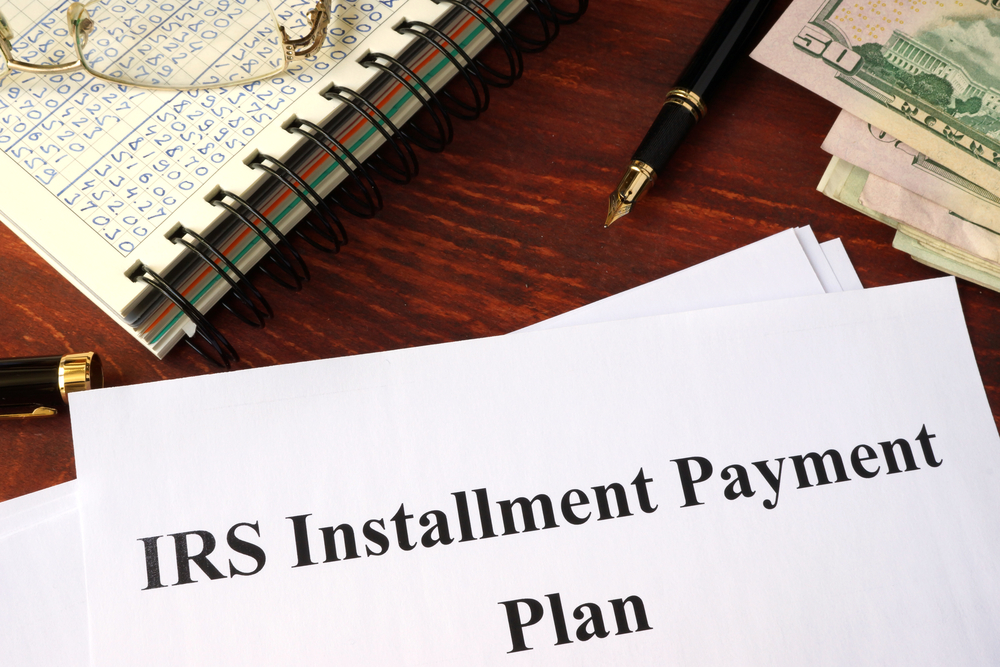

 It happens to taxpayers every year: They file their taxes with a certain expectation about how much they will owe or how much they will get back in a refund. Instead, they get hit with an unexpectedly large tax bill. If this has happened to you this year, you may be wondering what your options are if you can’t afford to pay off your taxes before the tax deadline. Keep reading to learn about five different options that may be available to you.
It happens to taxpayers every year: They file their taxes with a certain expectation about how much they will owe or how much they will get back in a refund. Instead, they get hit with an unexpectedly large tax bill. If this has happened to you this year, you may be wondering what your options are if you can’t afford to pay off your taxes before the tax deadline. Keep reading to learn about five different options that may be available to you.
An Extension or Short-Term Payment Plan
Please note that an extension to pay is not the same as requesting an extension to file. Filing for an extension involves sending in a form requesting an additional six months to file your taxes; however, you’re still expected to pay what you owe (or your best estimate of what you will owe) when you file for an extension. If you request a filing extension and do not pay your taxes, you’ll be hit with additional fines for failing to pay on time.
So, if you want an extension that will give you more time to pay, not simply more time to file, you need to contact the IRS either on the phone or through their online payment agreement application. This extension is also known as a “short-term payment plan,” and it gives you 120 additional days to pay off your tax bill. It’s a good option if you just need a little extra time to find the funds to pay off your taxes.
For example, you might request an extension on your tax bill so that you have time to get a home equity line of credit. If your request is granted, you would then have that additional grace period to get your line of credit, borrow against your home’s equity, and pay off the IRS. Typically, a short-term payment plan doesn’t come with a setup fee, but you will still accrue penalties and interest until you pay off the tax bill in full.
Long-Term Payment Plans
If you need more than just 120 days to pay off the IRS, long-term monthly payment plans are typically quite easy to set up. If you owe less than $50,000 and intend to pay off your taxes in less than 72 months, you can get a streamlined payment plan that requires less paperwork; typically, you’ll only need your banking and employment information to set it up. If you owe less than $25,000, the IRS won’t file a federal tax lien; if you owe between $25,001 and $50,000, you can pay by payroll deduction or direct debit to avoid a lien.
The IRS is usually quite willing to set taxpayers up on a payment plan—especially if you’ve always paid your taxes in the past. When you request a payment plan, you’ll need to watch your mail for a notice that your payment plan has been approved. Once this is done, if you’re paying by direct debit or payroll deduction, the IRS will begin withdrawing the agreed-upon monthly amounts each month until your tax debt is paid.
You’ll continue to accrue interest and penalties on any unpaid amounts every month. However, if this is the first time you haven’t paid your taxes in full, you may be able to get an abatement on those penalties. Once you’ve paid your tax debt, you can contact the IRS to ask for a first-time penalty abatement that will waive the accrued penalties.
Offer in Compromise
If you have little to no monthly income, no prospects of increased income in the future, and very few assets, you may be able to request an offer in compromise, or OIC. This may allow you to settle your tax debt for less than what you actually owe. However, receiving an OIC isn’t easy, and it’s quite rare that the IRS will agree to one.
You can only qualify if:
If you qualify, you’ll need to fill out the OIC package and submit it with an offer of an amount that you can pay to the IRS. The IRS will investigate your financial situation quite thoroughly to determine if the amount you offered is reasonable based on your income and assets. If they agree, you’ll be expected to pay the full offer amount, and you’ll have to file and pay your taxes every year for the next five years. So long as you keep those terms, your remaining tax debt would be waived.
If you’ve been hit with an unexpectedly large tax bill and want expert assistance in requesting a payment plan or OIC, contact us. We’ll work with the IRS on your behalf to see what can be done to take care of your tax debt.
Article provided by: